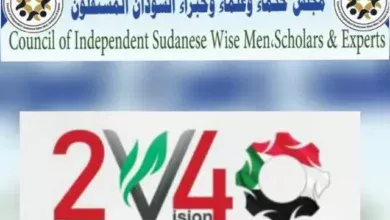The importance for universities to apply, within the framework of social responsibility, scientific research in the areas of achieving sustainable development in Sudan ✍️ Professor: Fikri Kabbashi, Al-Amin Al-Arabi

The United Nations has focused on sustainable development and assigned it a division. The division began its program of developing sustainable development indicators in 1994, in cooperation with other organizations. A core set of these indicators was developed for use at the national level, and they were reviewed and revised. The Division also supports countries in their efforts to establish their own national programs to identify sustainable development indicators by organizing capacity building workshops and. The Division also contributes to work related to indicators specific to development goals, including: Indicators to which universities should contribute with their capacities and human cadre of researchers, which should focus on guiding scientific research on several of the topics following, for example. :
a. Scientific research in the field of energy: The use of energy is necessary for social and economic development, but it is linked to negative impacts on the environment. Energy is an essential element of development and human life in general. Providing clean, inexpensive energy has become one of the primary tasks of those responsible for raising living standards and combating poverty, as well as reducing the resulting negative effects. the misuse of energy, such as the unfair cutting of forests for wood and charcoal. Which harmed the environment in two different ways. First, remove vegetation and pollute the air with gases. But since energy is an essential and indispensable element in people's lives. The focus is now on clean and alternative energy such as hydroelectric generation, solar power and wind speed. Therefore, the expansion of research into the provision of clean energy is one of the necessary alternatives to achieve sustainable development while preserving the environment. In addition to reducing the poverty rate.
Furthermore, energy itself depends on complementary elements on which concentrated efforts are necessary for its development to be complete. Like transferring energy from its production sites to its consumption sites. Research on alternative energies itself needs to be supported, to raise awareness and guide the population to know the importance of clean energy and to preserve their environment through the use of traditional energies, which pollute the atmosphere, harm the soil and pollute the environment. water.
B. Scientific research in the field of water harvesting: Water is the basis of life, and pure fresh water free from impurities is one of the problems facing a large part of the earth's population, especially after the phenomenon of environmental pollution which followed the massive industrial renaissance. over the last century. In addition to the population explosion. Per capita access to fresh water is significantly reduced. Of course, water is outweighed by the disadvantages of sanitation. The United Nations General Assembly showed particular recognition of the importance of fresh water when it launched on March 22, 2005 the International Decade for Action (Water for Life) for the period 2005- 2015.
C. Scientific research in the field of consumption adopts more sustainable modes of consumption and production:
Providing fresh water and clean energy alone is not enough to achieve sustainable development. Changing consumption patterns based on waste, extravagance and irrational spending would waste efforts dedicated to providing clean energy and fresh water. Therefore, awareness and guidance must be provided to change people's consumption patterns so that they can benefit from the energy and water that has been saved to achieve the greatest possible sustainable development and be able to fight against poverty, famine and poverty. the thirst. It is often observed that large, poor cities consume greater proportions of water and energy. Due to space constraints and to compensate for poor ventilation in the home. With the excessive use of water, I will try to address the rest of the topics on which universities should focus their efforts through research, which represents sustainable development, successively in other opportunities until the system is completed as part of the fulfillment of its social responsibility. ..
Teacher: Fikri Kabashi Al-Amin Al-Arabi.






